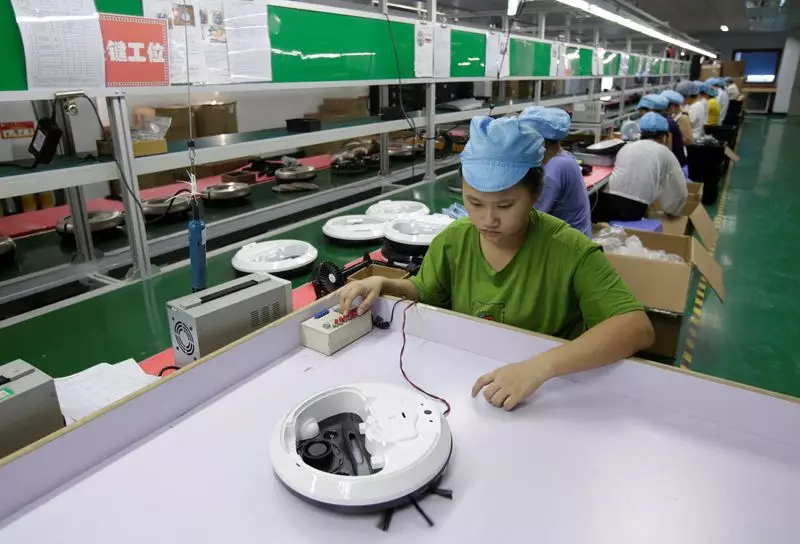China, being the world’s second-largest economy, plays a significant role in the global market. However, recent data on China’s manufacturing activity in May has raised concerns. The official manufacturing purchasing managers’ index (PMI) dropped unexpectedly to 49.5 in May from 50.4 in April. This decline indicates a contraction in the sector, reflecting challenges such as soft domestic demand, a worsening housing sector, and weak retail sales. Analysts had forecasted a PMI of 50.4, making this disappointing data a cause for worry.
The decline in China’s manufacturing activity has broader implications for business, consumer, and investor confidence. The PMI’s sub-indices for new orders and new export orders both fell into contraction after two months of growth. This decline suggests a slowdown in economic growth and raises concerns about the overall health of the global economy. As China’s manufacturing sector struggles, it affects supply chains, trade relations, and investment decisions worldwide.
Economists are looking towards new government policies to address the challenges faced by China’s manufacturing sector. Measures such as the property rescue plan and the issuance of special sovereign bonds are expected to have a positive impact in the coming months. However, the effectiveness of these policies remains uncertain, and it is crucial for the government to implement comprehensive measures to stimulate growth and address the issues in the property sector.
The International Monetary Fund (IMF) revised up its growth forecast for China, but warned that the property sector remains a key risk to growth. The IMF sees potential for a more comprehensive policy package to address the challenges faced by China’s economy. Analysts, such as Nie Wen from Shanghai Hwabao Trust, emphasize the need for stronger stimulus on the demand side and the importance of maintaining stable credit channels to prevent negative effects on the economy.
China’s manufacturing activity has a significant impact on the global economy. The recent decline in the PMI raises concerns about economic growth, trade relations, and investor confidence. It is crucial for policymakers to address the challenges faced by China’s manufacturing sector and implement effective measures to support growth and stability. The global economic outlook depends on China’s ability to navigate through these challenges and emerge stronger in the post-pandemic era.

